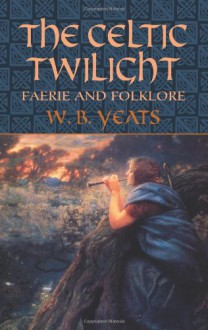In "Celtic Twilight," W. B. Yeats recites several accounts of encounters with the faerie folk and with the people of Ireland of the time which gives us insight into Irish folklore, myth and legend. One gets the strong impression from reading "Celtic Twilight" that Yeats actually believed in the...
show more
In "Celtic Twilight," W. B. Yeats recites several accounts of encounters with the faerie folk and with the people of Ireland of the time which gives us insight into Irish folklore, myth and legend. One gets the strong impression from reading "Celtic Twilight" that Yeats actually believed in the existence of the faeries. Not just as some myth or legend, but as actual beings that exist in this world, though perhaps unseen by the common man. He wrote each story in "Celtic Twilight" as if it was something that actually happened, having been related to him by the storyteller, or perhaps that which he had seen for himself in some past time, now recalled as he set pen to paper. Rooted in myth and belief in magic, these stories are populated by a lively cast of sorcerers, fairies, and nature spirits. The great Irish poet heard these enchanting, mystical tales from Irish peasants, and the stories' anthropologic significance is matched by their timeless entertainment value. It is interesting to note that Yeats was heavily involved in occult studies and practices as part of the Madame Helene Blavatsky's, Theosophical Society and later, the Hermetic Order of the Golden Dawn, and finally in 1912 the Ordo Templi Orientis. This would have certainly influenced his outlook on life and his belief in, and dare we say ability to see the unseen things of this world. W. B. Yeats certainly influenced the world at large with his writings. In 1923 Yeats was awarded the Nobel Prize for Literature, and in 1934 he shared the Gothenburg Prize for Poetry with Rudyard Kipling.
show less






 14 years ago
14 years ago